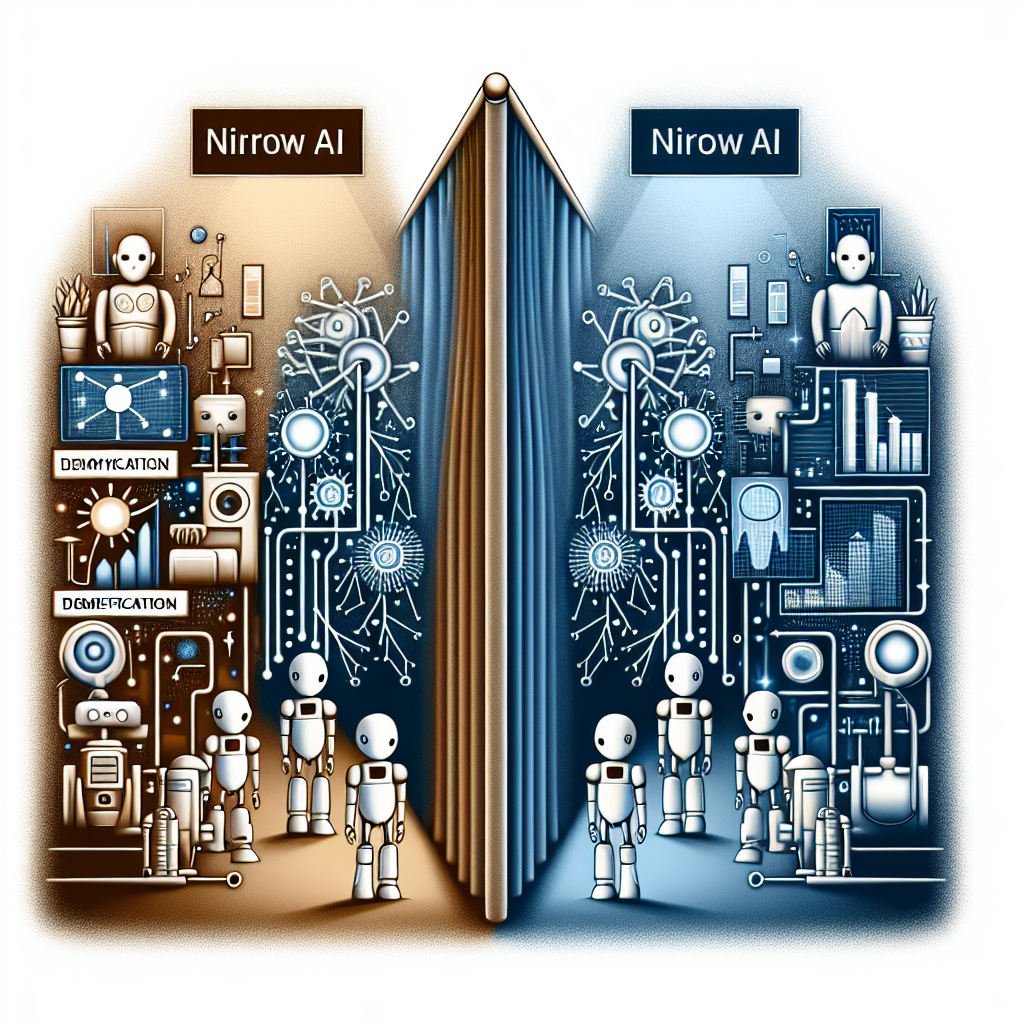Demystifying AGI: How It Differs from Narrow AI and the Potential Impact on Society
Artificial General Intelligence (AGI) is a term that has been gaining traction in recent years as advancements in artificial intelligence have accelerated. While Narrow AI systems are already in use in various industries and applications, the development of AGI represents a significant leap forward in the field of artificial intelligence. In this article, we will explore the differences between AGI and Narrow AI, as well as the potential impact that AGI could have on society.
What is AGI?
AGI refers to a type of artificial intelligence that possesses the ability to understand, learn, and apply knowledge in a way that is similar to human intelligence. Unlike Narrow AI, which is designed to perform a specific task or set of tasks, AGI is capable of generalizing its knowledge and applying it to a wide range of tasks and situations.
AGI has the potential to revolutionize industries such as healthcare, finance, and transportation, by providing solutions to complex problems that require human-like reasoning and decision-making abilities. For example, an AGI system could be used to diagnose diseases, predict financial trends, or optimize transportation routes in ways that are currently beyond the capabilities of Narrow AI systems.
How does AGI differ from Narrow AI?
The main difference between AGI and Narrow AI lies in their scope and capabilities. Narrow AI systems are designed to perform specific tasks or solve specific problems within a limited domain. For example, a self-driving car uses Narrow AI to navigate roads and avoid obstacles, but it lacks the ability to generalize its knowledge to other tasks, such as diagnosing medical conditions or composing music.
In contrast, AGI systems are designed to mimic the general intelligence of humans, allowing them to learn from experience, adapt to new situations, and solve a wide range of problems across different domains. AGI systems have the potential to surpass human intelligence in certain areas, leading to the emergence of superintelligent machines that could have a profound impact on society.
What are the potential impacts of AGI on society?
The development of AGI has the potential to bring about significant changes in society, both positive and negative. On the positive side, AGI systems could revolutionize industries such as healthcare, finance, and transportation, by providing more accurate and efficient solutions to complex problems. For example, AGI systems could be used to diagnose diseases at an early stage, predict financial trends with greater accuracy, and optimize transportation routes to reduce congestion and emissions.
However, the emergence of AGI also raises concerns about its potential impact on jobs, privacy, and security. As AGI systems become more advanced, they could replace human workers in a wide range of industries, leading to widespread unemployment and economic disruption. In addition, AGI systems could pose a threat to privacy and security, as they have the potential to access and manipulate vast amounts of sensitive data.
FAQs
Q: Can AGI surpass human intelligence?
A: Yes, AGI systems have the potential to surpass human intelligence in certain areas, leading to the emergence of superintelligent machines.
Q: How is AGI different from Narrow AI?
A: AGI is designed to mimic the general intelligence of humans, while Narrow AI is designed to perform specific tasks within a limited domain.
Q: What are the potential impacts of AGI on society?
A: AGI could revolutionize industries such as healthcare, finance, and transportation, but it also raises concerns about jobs, privacy, and security.
In conclusion, AGI represents a significant leap forward in the field of artificial intelligence, with the potential to revolutionize industries and solve complex problems that are currently beyond the capabilities of Narrow AI systems. However, the development of AGI also raises concerns about its potential impact on society, including its implications for jobs, privacy, and security. As researchers continue to make advancements in the field of AGI, it will be important to carefully consider the ethical and societal implications of this emerging technology.

